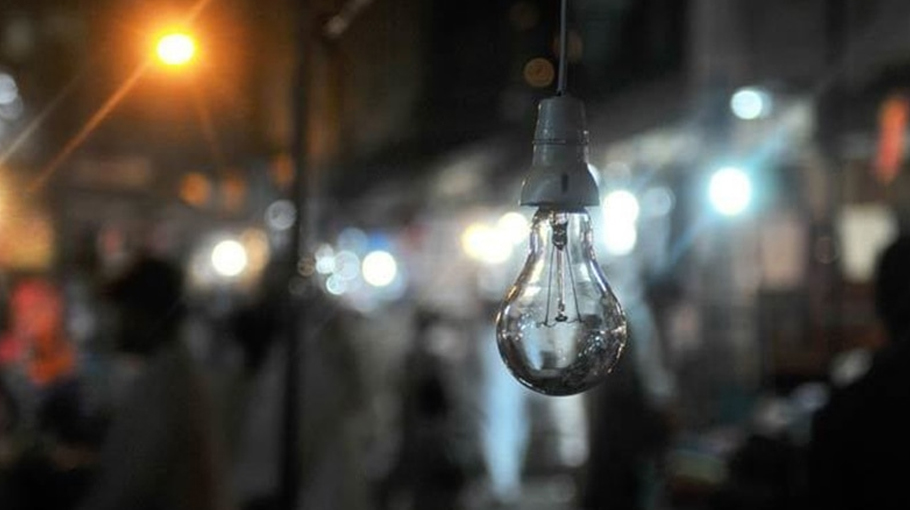No respite from power outage in September

Ongoing power outages increased more on Wednesday than the previous day as there is no respite from load-shedding soon.
Load-shedding the people experiencing from remote villages to the capital across the country over the past few days will continue throughout this month. Reports pouring in from the authorities concerned suggested that load-shedding will continue for several hours every day.
Load-shedding has intensified across the country for the last five days following rising mercury. People of the country in remote areas are experiencing load-shedding for eight to ten hours a day due to disruption in power generation for a shortage of sufficient fuel supply.
The situation is expected to normalise within 20 days, said Dr Muhammad Fouzul Kabir Khan, adviser to the Ministry of Power, Energy, and Mineral Resources.
The adviser hinted that there is no relief from the power crisis throughout the month of September.
According to the sources, the power supply situation has further deteriorated across the country following completely shutdown of a power plant. In such a situation, there is no sign of improvement in power generation in near future.
Rajshahi, Rangpur, Dianjpur, Cumilla, Mymensingh and Sylhet regions are mostly affected by power cuts.
Abdul Halim, a rice miller in Dinajpur district, said that his mill’s output has dropped significantly because of unusual power cuts.
Ahmed Saleh Bin Malik, a businessman at Uposhohor in Sylhet city, told the Bangladesh Post that his business has been affected by frequent power cuts for the last couple of days. “We have been facing 8-12 hours load-shedding every day,” he said.
Alongside other parts of the country, load-shedding has hit the capital as well. “We are facing untold sufferings for frequent load-shedding,” said Engineer Belal Ahmed, a resident of Mirbagh area in the capital.
Two power distribution companies in Dhaka--Dhaka Power Distribution Company (DPDC) and Dhaka Electric Supply Company (DESCO)--have been facing around 500MW of supply shortfall every day, according to the data available from the companies.
Talking to journalists at the Secretariat on Wednesday, Dr Muhammad Fouzul Kabir Khan said, “Load-shedding continues for several incidents. For example, the Barapukuria coal-based power plant unexpectedly shut down, and at the same time, a unit at the Rampal power plant developed mechanical faults. If gas supplies were stable, it would have been easier to manage the crisis.”
Officials of Power Development Board (PDB) are putting the blame for frequent power cuts on insufficient electricity generation by the coal-based power plants due to various technical issues.
In the meantime, the Adani’s Godda power plant, which has outstanding bills of about $800 million, is supplying about 500MW less electricity.
The PDB has outstanding bills of about Tk 35,000 crore, most of which need to be paid in dollars. The payment has been put on hold due to the dollar crunch, said PDB sources.
As of September 4, foreign currency exchange reserves stood at about $20.6 billion, enough to service about four months’ import bills, according to the Bangladesh Bank data.
The dollar crunch has interrupted import of primary fuel including coal, gas and furnace oil, which hit the power sector, according to the officials concerned.
Regarding the payment issues with the Adani Group, senior secretary of Power Division Habibur Rahman said that there is no financial crisis. “We have deposited Tk 10 crore with Sonali Bank. The bank is unable to make payments due to a dollar shortage, but we can provide more money, if needed. I hope there will not be any problem receiving electricity from Adani.”
Energy Adviser Dr Muhammad Fouzul Kabir Khan said that FSRU (Floating Storage Re-gasification Unit) operated by Summit Group has been out of operation for several months, disrupting gas supply. The process to import LNG is ongoing and it is expected to be completed within about 15-20 days. After this, gas supply will increase.
He further said that efforts are underway to quickly restore operations at Barapukuria and Rampal power plants. Then the situation will gradually improve, he hoped.
Habibur Rahman said that around 1,000MW of load-shedding occurred around noon on Wednesday. Barapukuria power plant is expected to be operational by Sunday. Efforts are also being made to quickly restore the unit at the Rampal power plant, he added.
The senior secretary also said that 7,000MW of electricity could previously be generated from gas, but due to a decrease in gas supply, only 4,800MW of electricity are currently being produced.
The country’s electricity production capacity is now approximately 27,791 megawatts, while the current demand is less than 16,000 megawatts. However, the country is experiencing around 2,000 MW of load-shedding every day, according to the data from the Bangladesh Power Development Board (PDB).




